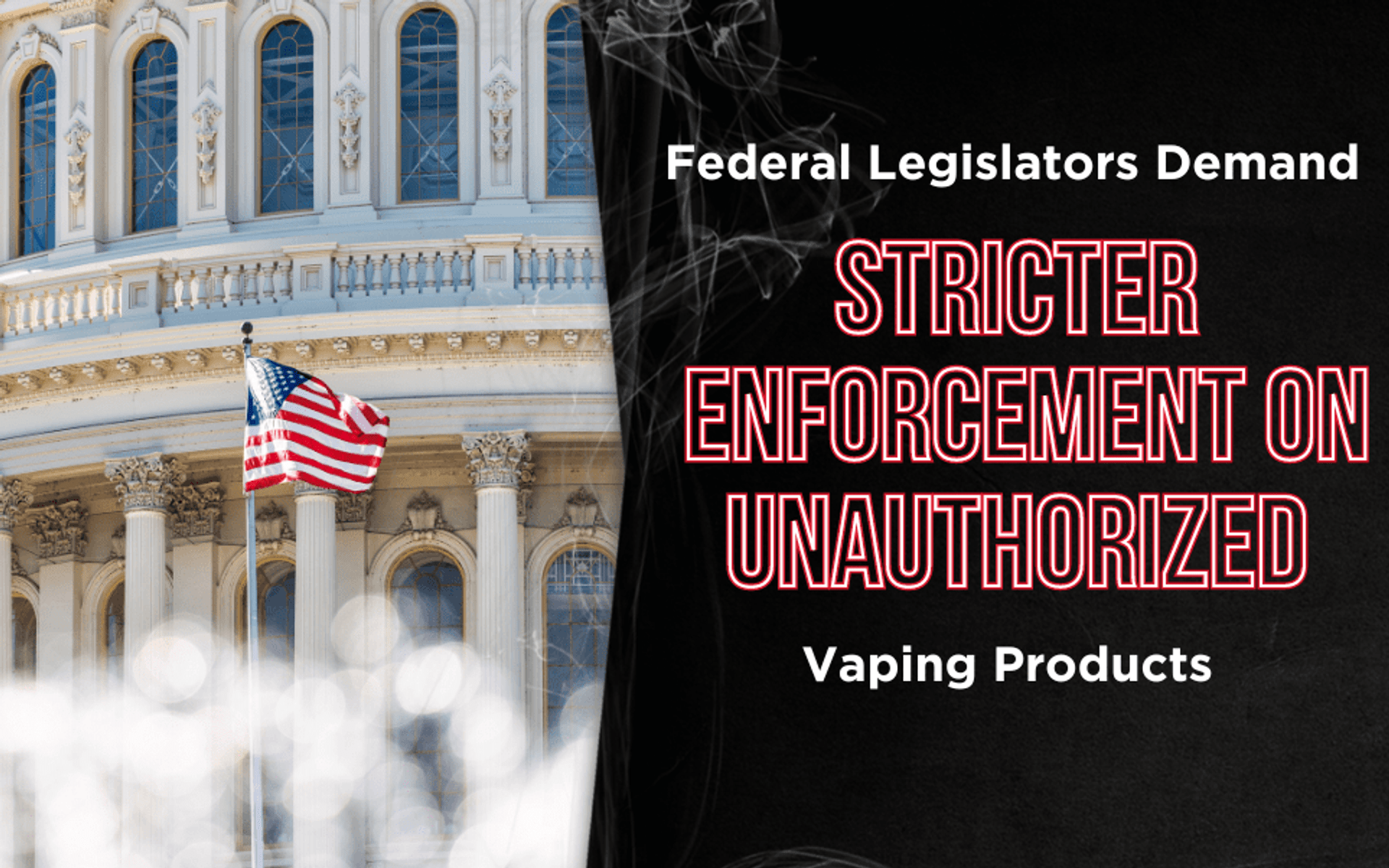Federal Legislators Demand Stricter Enforcement on Unauthorized Vaping Products
Estimated 0 min read
Federal legislators who control the FDA's funding are intensifying their demands for stricter enforcement against vaping products that the agency still needs to grant marketing authorization.
The Democratic-led Senate and the Republican-led House Appropriations committees have passed Fiscal Year 2025 spending bills that include penalties for the FDA if the agency does not pursue tougher enforcement policies, particularly targeting flavored and disposable vape products.
Bipartisan Effort Against Popular Vaping Products
The push against disposable and other independent vaping products is a rare instance of bipartisan cooperation. Democratic Senate members have incorporated language from tobacco control activists into their legislation. At the same time, Republicans in the House have adopted wording from tobacco industry-sponsored PMTA registry bills introduced in various state legislatures this year. This collaboration between tobacco industry interests and anti-tobacco advocates is not unprecedented. The 2009 Tobacco Control Act, which gave the FDA regulatory authority over tobacco, was also created with support from the Campaign for Tobacco-Free Kids and Marlboro manufacturer Philip Morris (now Altria Group).
To date, every vaping product on the FDA’s small list of authorized products comes from companies owned by tobacco giants like Altria Group, Japan Tobacco, and R.J. Reynolds. This situation is unlikely to change if congressional appropriators from both parties succeed in their current efforts.
Republicans Aim to Protect Tobacco Interests
The House Appropriations Committee, controlled by Republicans and chaired by Tom Cole (R-OK), has passed a bill that mirrors the Senate's demands but with different incentives and penalties. The House bill would prevent the FDA from banning menthol cigarettes and flavored cigars or limiting nicotine levels in cigarettes until the agency updates its 2020 enforcement guidance, requires foreign manufacturers to register with the CTP, issues import alerts, and submits quarterly reports on its progress in removing non-compliant nicotine products from the market.
Furthermore, the House bill requires the FDA to create a publicly disclosed list of authorized products for U.S. sale, instructing manufacturers, wholesalers, and retailers to cease distribution, sale, and marketing of any product not on the list. This language aligns closely with PMTA registry bills lobbied for by Altria in state legislatures this year.
Democrats Focus on Youth Prevention
The Democratic-controlled Senate Appropriations Committee, led by longtime vaping opponent Patty Murray (D-WA), has proposed an appropriations bill that threatens to withhold FDA funding unless the agency updates its 2020 enforcement priority guidance to target disposable vapes specifically. The bill also calls for a proposed rule requiring foreign manufacturers to register with the FDA's Center for Tobacco Products (CTP) and regular import alerts to curb the importation of non-compliant tobacco products.
Additionally, Senate appropriators demand the FDA submit quarterly reports detailing the number of pending premarket tobacco applications (PMTAs) and their submission dates. If these demands are not met, the FDA would lose about $25 million allocated for salaries and expenses. The Senate bill also allocates an additional $2 million for a multi-agency task force led by the FDA and the Justice Department to enforce vaping product restrictions. The accompanying report urges the FDA to deny PMTAs for all products, especially flavored ones, that might increase youth initiation.
Conclusion: Evaluating the Impact of Legislation
While the proposed bills from both the Senate and House are designed to protect the legacy tobacco industry, they also aim to make it harder for individuals to access effective nicotine alternatives, potentially hindering smoking cessation efforts. Whether or not these measures address youth vaping effectively are uncertain and may instead reduce the availability of appealing and safer options for adult smokers. As the legislative process continues, the outcome will determine the balance between regulation and accessibility in the vaping market.







